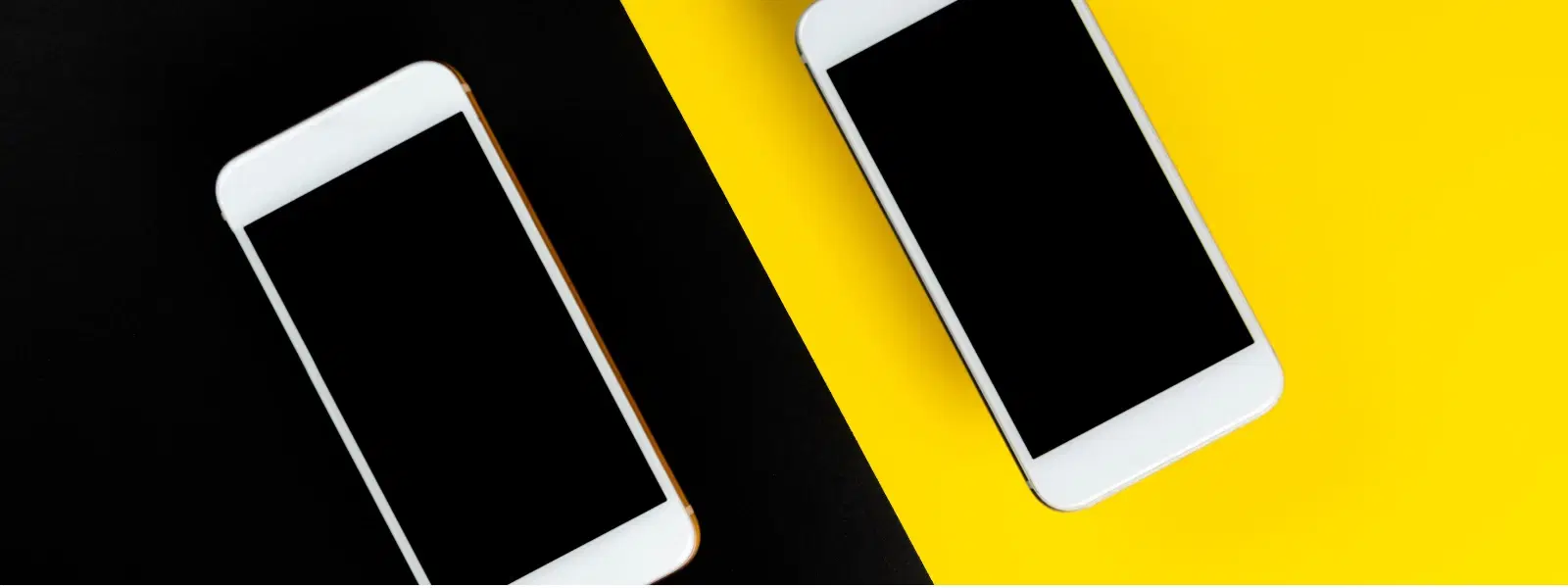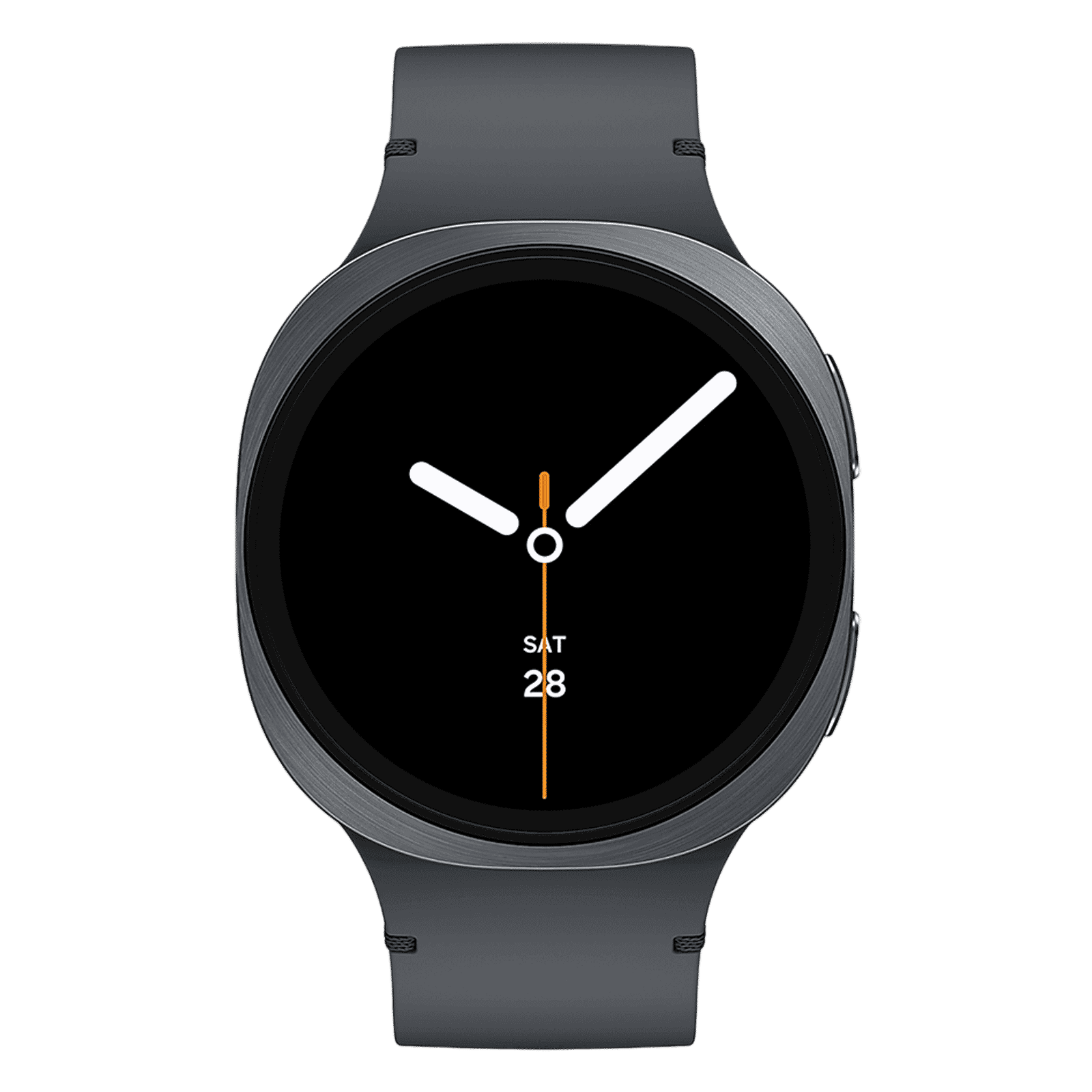
Consumer Electronics
•07 min read

Buy SAMSUNG Galaxy Watch8 Wi-Fi+BT+GPS Wear OS Smartwatch (44mm Super AMOLED Display, 3nm Processor, Fall Detection, Sport Strap) online at best prices from Croma. Check product details, reviews & more. Shop now!
In the world of smartphones, the debate between Android phones and iPhones is a never-ending saga. With over 2.5 billion active Android devices and more than 1 billion iPhones in use globally, the choice between these two giants can be daunting. This comparison aims to provide you with an in-depth look at the key differences, helping you make an informed decision. Additionally, we'll explore how Tata Neu and Croma can enhance your smartphone shopping experience.
When it comes to android phone vs iphone, the operating system is often the first thing that comes to mind.
Android is known for its open-source nature, allowing for extensive customization. Users can tweak the user interface, install custom ROMs, and even change the look and feel of their device entirely. This flexibility makes Android a favorite among tech enthusiasts who love to personalize their gadgets. Additionally, Android's compatibility with a wide range of hardware options, from budget to high-end devices, offers something for everyone.
On the other hand, iOS offers a more closed ecosystem. While this limits customization, it ensures a seamless user experience. The integration with other Apple products like the iPad, MacBook, and Apple Watch is unparalleled, providing a cohesive ecosystem that works flawlessly. This level of integration is particularly beneficial for users who are already invested in the Apple ecosystem, making tasks like file sharing and device syncing incredibly straightforward.
Performance is another critical factor in the android vs iphone user experience.
Android phones come in a variety of hardware configurations, from budget options to high-end devices with cutting-edge specs. iPhones, however, have a more unified approach, with fewer models but consistent high-quality hardware. This consistency ensures that all iPhone models deliver a reliable performance, making them a preferred choice for users who prioritize stability and longevity.
iOS is known for its excellent software optimization, making even older devices perform smoothly. Android has made significant strides in this area, but the experience can vary depending on the manufacturer and model. For instance, Google's Pixel phones are known for their optimized performance, whereas other brands may not offer the same level of consistency.
Battery life is a crucial consideration for any smartphone user.
Android phones often boast larger battery capacities compared to iPhones. However, battery life isn't just about capacity; it's also about how well the software manages power. For example, devices with adaptive battery features can extend usage times by learning user habits and optimizing background processes.
iOS is renowned for its efficient battery management, often outperforming Android in real-world usage despite having smaller batteries. Android has improved significantly, with features like adaptive battery and power-saving modes. This makes both platforms competitive in terms of battery life, giving users multiple options based on their preferences.

Buy Apple iPhone 14 (128GB, Blue) online at best prices from Croma. Check product details, reviews & more. Shop now!
For many users, the camera is one of the most important features.
Both Android phones and iPhones offer impressive camera specs. High-end Android models often feature multiple lenses, including ultra-wide and telephoto options. iPhones are known for their consistent photo quality and excellent video recording capabilities. This makes iPhones particularly appealing for users who prioritize video content creation.
In real-world performance, iPhones often excel in video quality, thanks to their superior stabilization and color accuracy. Android phones, however, offer more versatility with features like manual controls and various shooting modes. This makes Android a preferred choice for photography enthusiasts who want more control over their shots.
Security and privacy are paramount in today's digital age.
iOS is often considered more secure due to its closed ecosystem and stringent app review process. Android offers robust security features but is more susceptible to malware due to its open nature. However, Android has made significant improvements in recent years, with features like Google Play Protect and regular security updates.
Both platforms have made significant strides in privacy controls. iOS offers features like app tracking transparency, while Android provides detailed permissions management. This ensures that users have control over their data, making both platforms reliable in terms of privacy.
Customization is where Android shines.
Android allows users to customize almost every aspect of their device, from the home screen layout to system-wide themes. iOS offers limited customization but ensures a consistent user experience. This makes Android ideal for users who love to tweak their devices, while iOS is perfect for those who prefer a more straightforward approach.
The impact of customization on user experience varies. Android users appreciate the flexibility, while iOS users value the simplicity and reliability. This difference in user experience is often the deciding factor for many when choosing between the two platforms.
The app ecosystem is another crucial factor.

Buy Apple iPhone 14 (128GB, Midnight) online at best prices from Croma. Check product details, reviews & more. Shop now!
The Google Play Store offers a vast selection of apps, often with more free options. The Apple App Store is known for its high-quality apps, with a more stringent review process. This ensures that apps on the Apple App Store are generally more secure and reliable.
Both platforms offer a wide variety of apps. However, iOS often gets exclusive apps and updates first, thanks to its unified hardware and software environment. This makes iOS a preferred choice for users who want access to the latest apps and features.
Experts suggest choosing a phone based on your specific needs. If you value customization and a wide range of hardware options, an Android phone might be the best choice. If you prefer a seamless user experience and tight integration with other devices, an iPhone could be the way to go. Additionally, platforms like Tata Neu and Croma offer a wide range of smartphones, making it easier for you to find the perfect device.
iPhones are generally better for gaming due to their powerful hardware and optimized software. However, high-end Android phones also offer excellent gaming performance, often with additional features like customizable game settings.
iPhones are typically more expensive, while Android phones offer a wider range of price options. This makes Android a more flexible choice for users with varying budgets.
Switching from iPhone to Android is generally easier due to the open nature of Android. However, both platforms offer tools to make the transition as smooth as possible.
Apple is known for its excellent customer support, while Android support can vary by manufacturer. Brands like Samsung and Google offer robust customer support, making Android a reliable choice as well.
Most popular apps are available on both platforms, but there can be exclusive apps for each. This makes it important to check app availability based on your specific needs.
iPhones typically receive software updates for a longer period, ensuring that even older models stay up-to-date. Android updates can vary by manufacturer, but brands like Google and Samsung have improved their update policies significantly.
In summary, the choice between an Android phone and an iPhone depends on your personal preferences and needs. Android offers customization and a wide range of hardware options, while iOS provides a seamless, integrated user experience. Explore Tata Neu for a wide range of smartphones and enjoy benefits like earning NeuCoins, express delivery (check availability), and expert guidance to help you make the right choice. With Tata Neu and Croma, you can shop with confidence, knowing that you are getting the best deals and services tailored to your needs. Whether you prefer to shop online or in-store, Tata Neu and Croma have got you covered with advanced technology, a wide budget range, and unmatched after-sales support.